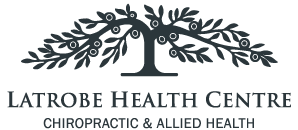Myotherapy Treatment for Shoulder Pain
The shoulder joint – the most mobile joint in the body – is formed by the ball of the humerus sitting within the socket of the scapula. The socket is quite shallow, so the joint is heavily reliant on its associated ligaments, muscles, tendons and fascia for structural reinforcement; Numerous nerves and blood vessels weave between some of these reinforcing structures on their path from the neck to the arm. The mobility and relative instability of this joint makes the structures of the shoulder area vulnerable to injury and irritation.
Our myotherapists assess and treat a wide array of shoulder complaints, ranging from acute trauma to chronic issues. By asking the right questions and observing your ability to perform relevant movements and clinical tests, myotherapists are able to hypothesise which structures are involved in your shoulder pain. The therapist then formulates a management plan aimed at returning your shoulder to an optimum level of comfort and function.
A management plan will often consist of a combination of hands on treatment as well as self-management strategies. Myotherapy treatment consists of the application of one or more of the following methods:
- manual soft tissue manipulation
- myofascial dry needling
- corrective exercises
- thermal therapies
- joint mobilisation
- assisted stretching
- taping & strapping
- lymphatic drainage and
- myofascial cupping
While shoulder injury is often due to local tissue trauma, shoulder pain can be – and commonly is – an expression of injury in a remote structure, such as the neck, arm, heart, or gall bladder, for example. (Alternatively, where necessary, you will be referred on for specialist care).
You can make an appointment with one of our myotherapists by clicking the link to book online, or call our reception staff on 5222 6868 to schedule a time.
You can find out more about each of our myotherpists here







